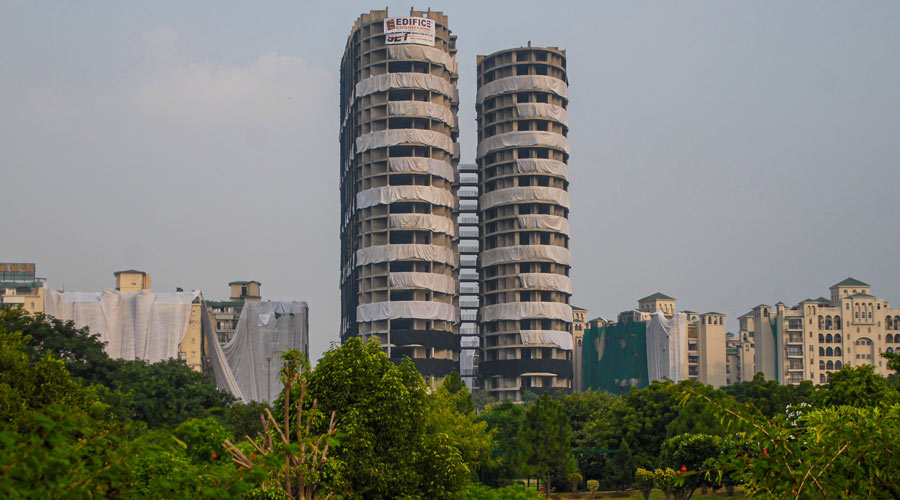A three-judge Supreme Court bench will decide whether it is constitutionally valid for political parties to promise freebies during elections without taking into account their impact on the overall economy of the state and country.
Referring the matter, the Supreme Court said on Friday that a 2013 two-judge bench ruling, which said the distribution of freebies was not a corrupt practice, needed reconsideration because of the “complexity” of the issue.
“Looking at the complexity of the issues involved, and the prayer to overrule a judgment rendered by a twojudge bench of this court…, we direct listing of these set of petitions before a threejudge bench, after obtaining the orders of the Hon’ble Chief Justice of India. List the matter after 4 weeks,” a bench of Chief Justice N.V. Ramana and Justices Hima Kohili and C.T. Ravi Kumar said.
The court issued the directive while dealing with a PIL filed by advocate Ashwini Kumar Upadhyay, challenging the promise of freebies by political parties in election manifestos and pre-poll speeches.
The two-judge bench had in the S. Subramaniam Balaji vs State of Tamil Nadu case in 2013 ruled that promises of freebies do not fall within the ambit of corrupt practices as specified under Section 123 of the Representation of the People Act, 1951, and issued directions to the Election Commission of India to frame guidelines as there was no relevant legislative enactment.
On Friday, the Supreme Court said: “We have considered the issues raised in these batch of petitions from various angles, as well as the stands taken by the Union of India, the Election Commission of India and some political parties who have filed intervention applications before us. There can be no denying the fact that in an electoral democracy such as ours, the true power ultimately lies with the electorate. It is the electorate that decides which party or candidate comes to power, and also judges the performance of the said party or candidate at the end of the legislative term, during the next round of the elections.
“It is also necessary to highlight herein the point raised by some of the interveners, that all promises cannot be equated with freebies as they relate to welfare schemes or measures for the public good.
“Not only are these a part of the Directive Principles of State Policy, but are also a responsibility of the welfare state. At the same time the worry raised by the petitioners herein, that under the guise of electoral promises, fiscal responsibility is being dispensed with, must also be considered.”
Political parties like the Congress, AAP and the DMK have opposed the petition on the ground that “welfare schemes” announced for the people cannot be termed as freebies and restricted.
They have submitted that it is unimaginable that any government or court can prescribe or curtail the rights of political parties to make such promises or announce schemes.
The parties that are responsible for running the government are conscious and aware of the problems of the people, they said, contending that the issue be left to them.
The Centre has supported the cause of the petitioner but pleaded that it has a very limited role when it comes to freebies. The Centre suggested that the court constitute a commission to consider the matter.
The Election Commission has consistently taken the stand before the court that it has limited scope to interfere in such pre-poll promises.
The main contention of the petitioner is that the preelection promises, which have a huge impact on the economy of the state, cannot be permitted.
Upadhyay has submitted that prepoll promises are being made by political parties without any assessment of the financial implications on the state and with an eye on votes only. This goes against the spirit of responsible electioneering and is adversely affecting free and fair polls and the need for a level playing field for all parties, the petitioner has argued.
Taxpayers’ money is ultimately being misused for political parties and candidates to gain or retain power, the petitioner has said.











